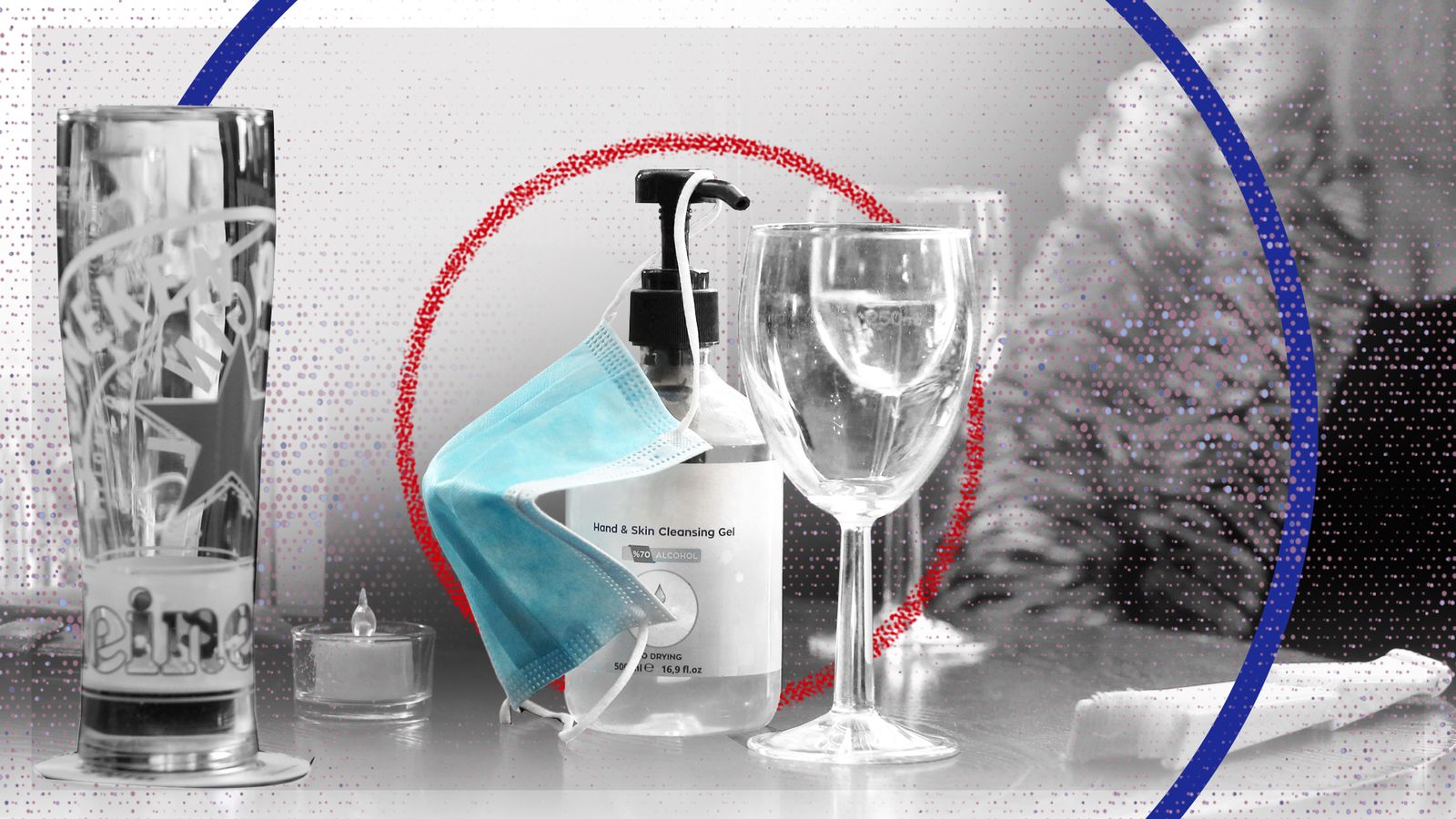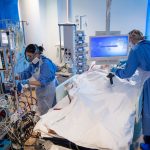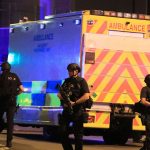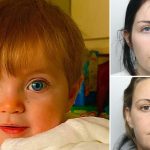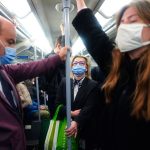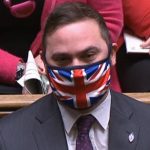COVID restrictions designed to curb the spread of the Omicron variant over Christmas are now being relaxed in England, Scotland and Wales.
Prime Minister Boris Johnson confirmed on Wednesday that all the Plan B measures introduced in England on 13 December will expire on 26 January.
“Because of extraordinary booster campaign, we can return to Plan A in England and allow Plan B regulations to expire,” he told the House of Commons.
Follow live updates as Boris Johnson faces pressure over partygate
First ministers Nicola Sturgeon and Mark Drakeford have also made similar announcements for Scotland and Wales in recent days.
Although leaders have stressed that COVID cases are still “very high”, Mr Johnson has said he soon hopes to be able to abandon self-isolation altogether in England as “our scientists believe that our Omicron wave has now peaked nationally”.
Here Sky News looks at what the rules now are on COVID-19 in the four nations of the UK.
Christian Wakeford: Tory MP defects to Labour telling Boris Johnson he is ‘incapable of offering leadership’
COVID: Reinfection risk from Omicron 16 times higher than Delta, ONS data indicates
Boris Johnson: More Tory MPs submit no confidence letters as pressure to oust PM mounts
England
From 27 January:
• People will no longer be advised to work from home
• COVID passes will no longer be used, although venues can choose to do so
• Face masks will no longer be mandated anywhere, but “suggested” in places where you mix with people you don’t usually meet
From 20 January face masks will also no longer be mandated in classrooms.
Self-isolation and testing
From 17 January people who test positive for COVID in England can leave isolation after five days – from the day their symptoms started or the day they test positive, whichever comes first – providing they get a negative lateral flow test (LFT) result on days five and six.
Previously isolation could only end after two negative LFT results on days six and seven.
From 11 January, people who test positive via LFT but have no symptoms are no longer required to book a confirmation PCR test.
People with symptoms still have to book a PCR test and both are required to isolate for at least five days.
Those identified as a close contact of a positive case do not have to isolate but should take daily LFTs for seven days and exercise caution when mixing with others.
This only applies to people who are fully vaccinated, if you aren’t you will have to isolate for 10 days.
Scotland
From 24 January:
• Three-household limit on indoor gatherings will be scrapped
• No limit on the number of people allowed to attend indoor events
• Social distancing will no longer be required between groups in indoor public places
• Table service in pubs, restaurants, bars and other hospitality venues can be scrapped
• Nightclubs can reopen
• Non-professor indoor contact sports can resume
• Face masks are still legally required on public transport, and in shops, hospitality and leisure venues
COVID passes
Scotland’s COVID certification scheme will remain in place, with people required to show they are either fully vaccinated or have tested negative for COVID via LFT in the past 24 hours for entry to certain venues.
They are:
• Late night premises with music, which serve alcohol at any time between midnight and 5am and have a designated place for dancing for customers
• Indoor events (unseated) with 500 or more people
• Outdoor events (unseated) with 4,000 or more people
• Any event with 10,000 or more people
But from 24 January these two changes will apply:
• 20% of attendees of large events must be checked for vaccination status – down from 50% – or at least 1,000 people, whichever figure is highest
• ‘Fully vaccinated’ status to get into late-night venues will mean having a second dose within the last 120 days – but not less than 14 days ago – or if their second dose was more than 120 days ago – they must have had their booster at least 10 days ago
Testing and self-isolation
From 5 January, people in Scotland who test positive for coronavirus can leave isolation seven days after they test positive or develop symptoms – whichever is first – providing they have no symptoms and test negative on an LFT on days six and seven.
They can leave isolation on any day after that providing they are asymptomatic and have had two negative results 24 hours apart.
From 6 January, people who test positive via LFT but have no symptoms are no longer required to book a confirmation PCR test.
People with symptoms still have to book a PCR test and both are required to isolate for at least five days.
Those identified as a close contact of a positive case do not have to isolate but should take daily LFTs for seven days and exercise caution when mixing with others.
This only applies to people who are fully vaccinated with three doses of a vaccine, if you aren’t you will have to isolate for 10 days.
Wales
On 14 January, First Minister Mark Drakeford announced a two-week roadmap, moving Wales from its current alert level two to zero.
From 15 January:
• The number of people who can be present at outdoor events will rise from 50 to 500
From 21 January:
• No limits on the number of people who can take part in outdoor activities
• Crowds will return to outdoor sporting events and outdoor hospitality will be able to operate without additional reasonable measures
• COVID passes will be required for entry to larger outdoor events
From 28 January:
• Wales will move to alert level zero for all indoor activities and premises
• No social distancing or table service required in hospitality venues
• Nightclubs can reopen with COVID passes required, as they are for cinemas, concerts, and theatres
• Working from home no longer a legal requirement
From 10 February:
• Wales returns to a three-week review cycle as the country is at alert level zero
COVID passes
Beyond 28 January, COVID passes will still be required for entry to the following venues in Wales:
• Large events, cinemas, theatres and concert halls
• Unseated indoor venues with more than 500 people in the audience
• Any outdoor or indoor unseated venues with a capacity over 4,000
• Any event, of any nature, which has more than 10,000 people in attendance
People can get a COVID pass by getting two doses of a vaccine or a negative LFT test taken within the previous 24 hours.
Testing and self-isolation
From 31 December, people in Wales who test positive for coronavirus can leave isolation after seven days after they test positive or develop symptoms – whichever is first – providing they have no symptoms and test negative on an LFT on days six and seven.
They can leave isolation on any day after that providing they are asymptomatic and have had two negative results 24 hours apart.
From 6 January, people who test positive via LFT but have no symptoms are no longer required to book a confirmation PCR test.
People with symptoms still have to book a PCR test and both are required to isolate for at least five days.
Those identified as a close contact of a positive case do not have to isolate but should take daily LFTs for seven days and exercise caution when mixing with others.
This only applies to people who are fully vaccinated with three doses of a vaccine, if you aren’t you will have to isolate for 10 days.
Northern Ireland
The COVID rules in Northern Ireland are still largely the same as they were in late-2021.
• People are advised – but not mandated by law – to meet with no more than two other households in a private home
• People are advised – but not mandated by law – to work from home where possible
• No more than 30 people can stay inside a private home overnight
• Indoor gatherings of more than 15 people and outdoor ones of more than 30 people must be subject to a COVID risk assessment
• Indoor standing events are banned
• Nightclubs remain closed
• No more than six people can sit at one table in hospitality venues, unless a single household contains more than that number of people
• No dancing is allowed inside hospitality venues
• These rules do not apply to weddings and civil partnerships
• Face masks remain a legal requirement on public transport, in shops, hospitality venues and most other indoor venues
COVID passes
From 29 November, a COVID certification scheme has been in place in Northern Ireland, requiring proof of two doses of a vaccine or a negative LFT test within 48 hours for entry into:
• Nightclubs
• Licensed hospitality premises, including ‘bring your own’ alcohol venues
• Cinemas, theatres, conferences and exhibition halls
• Indoor events with 500 or more attendees with some or all of the audience not normally seated
• Outdoor events with 4,000 or more attendees with some or all of the audience not normally seated
• Events where more than 10,000 people will be present regardless of whether they are seated
Self-isolation and testing
From 31 December, people in Northern Ireland who test positive for coronavirus can leave isolation after seven days after they test positive or develop symptoms – whichever is first – providing they have no symptoms and test negative on an LFT on days six and seven.
They can leave isolation on any day after that providing they are asymptomatic and have had two negative results 24 hours apart.
From 5 January in Northern Ireland people who test positive via LFT but have no symptoms are no longer required to book a confirmation PCR test.
People with symptoms still have to book a PCR test and both are required to isolate for at least five days.
Fully-vaccinated people who are identified as close contacts of a positive case do not have to self-isolate but should take daily LFTs for 10 days – before they leave their house each day.
Those who are not fully vaccinated must self-isolate for 10 days.
